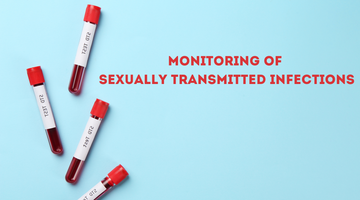
The first step in navigating STIs is understanding the risks and signs of infection. Some common STIs include chlamydia, gonorrhea, syphilis, herpes, and HIV. Symptoms of STIs can include itching, burning, discharge, sores, and rashes. However, many STIs are asymptomatic, meaning that individuals may not experience any symptoms even though they are infected. This is why it is so important to get tested regularly and to be aware of the risks associated with sexual activity.
When it comes to preventing STIs, the most effective way is to practice safe sex. This means using barrier methods, such as condoms and dental dams, to reduce the risk of transmission. Additionally, individuals should be proactive about getting tested and seeking treatment if they suspect they may have an STI. Early diagnosis and treatment can help to prevent the progression of STIs and reduce the risk of serious health consequences.
Another important aspect of navigating STIs is having open and honest communication with partners. This means discussing STI testing and prevention strategies, as well as sharing information about sexual health and history. Open communication can help to build trust and respect in relationships and can also reduce the stigma and shame that are often associated with STIs.
It is also important to be aware of the resources and support available for those who have been diagnosed with an STI. This may include access to medical care, counseling, and support groups. With proper care and treatment, many STIs can be managed and individuals can continue to live healthy, fulfilling lives.
It is also important to educate oneself about the different types of STIs, their transmission and prevention methods, and how to manage them if one does get infected. Understanding the facts about STIs can help to reduce the stigma and fear that often accompany diagnoses and can promote greater awareness and understanding about sexual health and well-being.
In conclusion, navigating STIs is a critical aspect of maintaining sexual health and well-being. By understanding the risks, practicing safe sex, and seeking support when necessary, individuals can reduce the spread of STIs and live healthy, fulfilling lives. By taking an active role in their sexual health, individuals can empower themselves and promote greater well-being and happiness.




